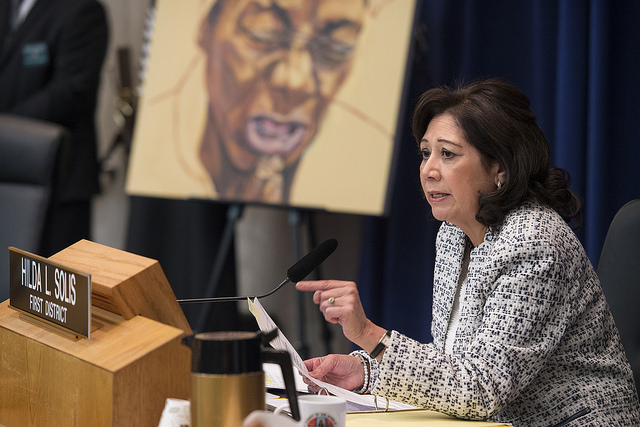The practice of restrictive housing will end at L.A. County’s Central Juvenile Hall, Camp McNair and Camp Scott by May 30. Other juvenile county lockups will end the practice by the end of September.
“The isolation of solitary confinement for young people causes anguish, causes serious mental and physical health problems,” says Kuehl, who cited a 2012 ACLU report: “Growing Up Locked Down: Youth in Solitary Confinement in Jails and Prisons Across the United States.”
“It doesn't improve behavior, it doesn't promote rehabilitation.”
The action comes just months after President Obama's executive action barring juvenile solitary confinement in federal institutions with some exceptions. More than a dozen states have similar prohibitions -- California is mulling a proposed juvenile detention overhaul sponsored by Sen. Mark Leno (D-San Francisco).
But L.A. County Interim Probation Chief Cal Remington still has concerns.
“When you have the potential for someone getting hurt, you need to be able to at least temporarily isolate for everyone's safety,” says Remington.
He agreed to support the county prohibition after supervisors agreed to allow temporary isolation holds or “cooldowns” in extreme circumstances -- and under the supervision of a mental health professional.
“It’s a challenge,” says Remington. “But one we are ready to take on. And I'm hoping many jurisdictions, particularly in California, will learn from Los Angeles as we understand how we're going to make this work.”
The county probation department will report back to the Board of Supervisors in 90 days with a progress report.
